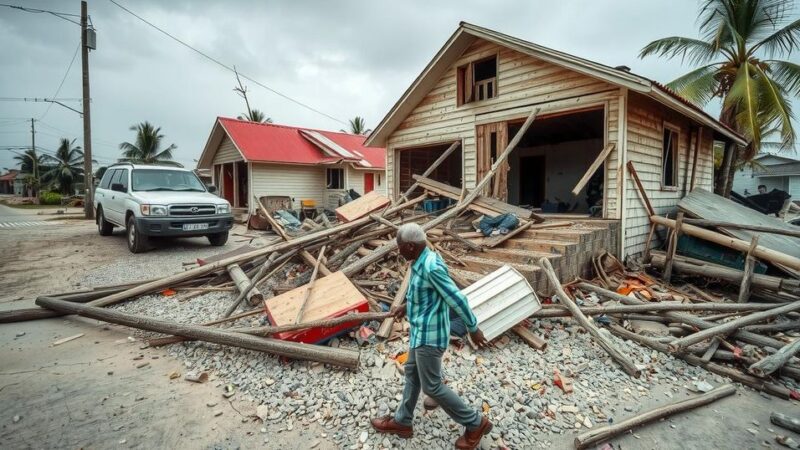A study by the World Weather Attribution network has linked devastating floods in Sudan, Nigeria, Niger, Cameroon, and Chad to anthropogenic climate change, finding that global warming has intensified rainfall in these areas by 5% to 20%. The floods have resulted in approximately 2,000 deaths and displaced millions, highlighting the need for better infrastructure and early warning systems amidst ongoing challenges like conflict and food insecurity.
A recent investigation by the World Weather Attribution (WWA), published on October 23, 2024, reveals that extreme rainfall resulting in severe flooding in five African nations—Sudan, Nigeria, Niger, Cameroon, and Chad—can be attributed to anthropogenic climate change. The study, conducted by an international team of scientists from diverse countries including Sudan, Egypt, Kenya, the Netherlands, Sweden, and the UK, indicates that global warming has intensified rainfall in the Niger and Lake Chad basins by approximately five to twenty percent during this rainy season. The ongoing flooding crisis this year has led to an estimated 2,000 fatalities and has displaced millions more, as reported by the United Nations Office for the Coordination of Humanitarian Affairs (OCHA). The study highlights a significant increase in month-long periods of intense rainfall in parts of Sudan, with an escalation of about 18 percent over the past forty years, likely due to climate change. With human-induced global warming, extreme weather events are occurring more frequently, and the projections suggest a worrying trend of even greater severity as global temperatures continue to rise. In a scenario where temperatures increase by 2°C, the region should brace for even more intense rainfall events than those encountered in the current year. The challenges presented by these climatic events are far-reaching, compounded by other factors such as armed conflict, extensive displacement, public health crises, acute food insecurity, and an increasing cost-of-living predicament. Vulnerable communities face significant threats, particularly those impacted by ongoing conflicts which have drastically limited their access to essential services. The flooding in regions such as West and Central Africa has damaged critical infrastructure, further exacerbating the spread of waterborne diseases, including the cholera outbreak which has reportedly claimed over 350 lives in Nigeria based on available estimates. The study stresses the urgent need for improved maintenance of dams and the establishment of effective early warning systems. Additionally, it sheds light on the significant shortcomings in water governance and adaptation strategies, particularly concerning shared water resources, which have been starkly highlighted by the flooding experienced in Sudan this year. The worsening conditions, combined with persistent conflict and systemic fragility, have intensified existing challenges related to poverty, rapid urbanization, and deteriorating infrastructure.
The investigation into the flooding crisis in five African nations is grounded in the broader context of climate change, particularly anthropogenic climate change, which has been shown to affect weather patterns significantly. These changes, particularly increases in rainfall intensity and frequency, have profound implications for vulnerable regions already contending with multiple crises, including conflict, food insecurity, and health challenges. Understanding the links between global warming and extreme weather events is crucial for developing effective strategies to mitigate these impacts and enhance community resilience.
In conclusion, the alarming findings of the WWA study highlight the critical connection between anthropogenic climate change and the increasing frequency of extreme rainfall and flooding in Africa. As the region faces compounded challenges from ongoing conflicts and health crises, it is imperative that efforts to fortify infrastructure, improve water governance, and implement effective disaster management systems are prioritized. Without these interventions, the risks to vulnerable populations will continue to escalate as climate change progresses.
Original Source: www.downtoearth.org.in







